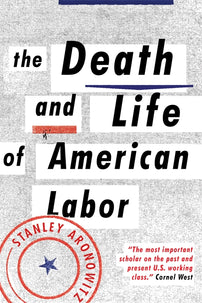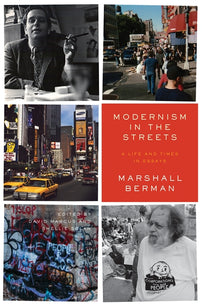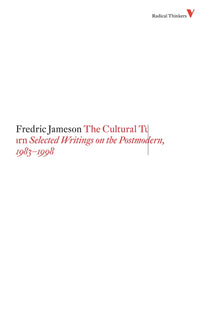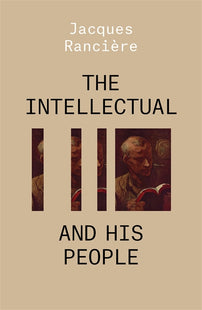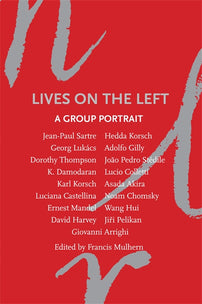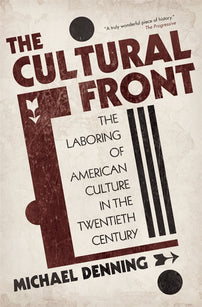Belonging on the Left: An Appreciation of Stanley Aronowitz
Bruce Robbins on Stanley Aronowitz as a public intellectual.

This text, adapted from a talk given at an event honoring Stanlety Aronowitz at the CUNY Graduate Center in April 2017, was first published in Politics/Letters.
People who write about intellectuals in the United States have tended to express a certain melancholy admiration for the so-called “New York Intellectuals.” The New York Intellectuals were political, there was never any doubt of that; in the 1930s in particular, when they flourished, they were even extremely political. There has been a good deal of questioning of the political commitments of those who have come after them, and of course also about the NY intellectuals themselves in the later stages of their careers. But there was no doubt that they were intellectuals — which is to say intellectuals rather than mere academics, primarily engaged in the public sphere rather than in universities and academic disciplines. The major mode in which the New York Intellectuals have been discussed has therefore been nostalgia: they are the crucial examples of the so-called “last intellectuals” whose extinction by the university, suburbia, and so on Russell Jacoby popularized in his book of that name.
One of the keenest pleasures in being asked to speak about Stanley Aronowitz on a panel devoted to the political intellectual is that he can speak about the New York intellectuals without any nostalgia whatsoever. I’m sure that there is more than one reason for this, but among the reasons I can think of is: 1) the fact that he himself can be as confident of his own status as a political intellectual as anyone on earth, and not just because he ran for governor on the Green Party ticket; 2) the fact that in the 1960s he found himself or rather put himself in the midst of other political intellectuals like him, a solid cohort of the New Left that, for all their peccadilloes and disagreements, have extraordinary achievements to their credit; and 3) the fact that the New York intellectuals, when push came to shove, refused to see the value of what the New Left generation was up to, hence is somewhat less deserving of our fondly idealizing memory, with some exceptions, than their supporters might think.
Lately I have been re-reading Stanley’s extraordinary essay “When the New Left Was New.” I found it in the collection The Death and Rebirth of American Radicalism (1996), but in going back to it I remembered that it first came out in The Sixties Without Apology (1984), edited by Stanley, Sohnya Sayres, Anders Stephanson, and Fredric Jameson. It was just about to see the light, as I remember, when I came to my first meeting of the Social Text collective. The essay is a very keen and wide-ranging analysis of the strengths and weaknesses of the intellectuals of the New Left, but it spends a fair amount of time in the narrative mode, and it encouraged a weakness I have myself for storytelling, so I hope you will forgive me if I spend a little time in that mode too.
I moved back to the US, after 8 years in Switzerland, in 1984. The first conference I went to in the fall of 1984 was the founding conference of the journal Cultural Critique. At that conference I didn’t meet Stanley, but I did meet Cornel West, and Cornel invited me to come to Social Text meetings back in NY. Which I did. For the next 15 years, I went to a lot of Social Text meetings. My wife, who had some experience of European-style party politics, often took an amused expression on those weekend afternoons when I went off to a Social Text meeting, referring to the journal as my “party.” It was a joke, but of course it had a point. Social Text was an uneasy substitute for a more direct form of political engagement — but it was not just a substitute, it was also a way into certain political engagements, a way of meeting people I shared commitments with and furthering those commitments. And at the very center of all that was Stanley.
As everyone probably knows, Stanley was one of the three founders of Social Text in the late 1970s. Those who are interested in the story can find it in issue #100, and probably elsewhere as well. (The other founders were John Brenkman and Fredric Jameson. You could say a lot about the trajectory of American cultural life since 1980 by following the individual trajectories of those three founders: what they’ve written about, or not written about; what political positions they have or haven’t taken, and so on. But by 1984 they were no longer coming to meetings.) The original impulse on the part of all three, it seems to me, looking from the outside, was to establish for the American left a serious journal of cultural politics. Political journals existed that were not especially cultural; cultural journals existed that were not especially political. This was to be a journal of both culture and politics.
Cultural politics, it seems to me, was a way of continuing the New Left project under unpropitious circumstances. This is not the way it looked to everybody, and it’s not the way people have necessarily seen it since. The tendency has been to forget about the unpropitious circumstances. As you know, there has been a considerable amount of criticism directed at cultural politics as identity politics, which is to say the wrong politics, or at cultural politics as simply rejecting politics in the real sense. In the latter category I put a polemic by Sean McCann and Michael Szalay entitled “Do You Believe in Magic? Literary Thinking after the New Left.” In the former category I put Walter Benn Michaels’s book The Trouble with Diversity, which argues (in a sort of parody of conspiracy theory) that the whole point of cultural politics was to be able to ignore economic inequality. The title “The Sixties Without Apology” seemed appropriate to the book the collective had just finished editing because there were a lot of requests that the 60s be apologized for. You can perhaps think of other examples. This note has been repeated many times, of course, and not without reason, since the Democratic Party under the leadership of the Clintonites and their faith in the demographics of race and gender delivered us unto the abominations of the present adminstration. Cue Nancy Fraser.
As someone who came to the New Left by way of the labor movement, as someone who always knew the minutest details of the labor movement the way a baseball fan knows their team’s rising and falling batting averages; as what might be called an organic intellectual of the labor movement (not that he ever claimed such a thing about himself), Stanley was and is well-placed to refute these charges — to show that recent efforts by people like Bernie Sanders and the Reverend William Barber to build a poor people’s movement were in fact part of the New Left project from the beginning. If the movement’s address to economic inequality failed, as the tells the story, it was not for lack of trying. As he tells the story, he himself was pushed out of the labor movement in 1966 as part of the leadership’s desire to purge the movement’s radical wing. There is no entry for labor movement, labor union, trade union, or AFL-CIO in the index of Michaels’ book The Trouble with Diversity. Or, for that matter, in the index of Russell Jacoby’s The Last Intellectuals. If you want to tell the story of what happened to the 60s or the political intellectuals, you can’t really afford to leave that stuff out.
The term “political intellectual” can sound as redundant as the term “public intellectual.” I mean, what is a private intellectual? If an intellectual is not public, is she or he really an intellectual at all? Isn’t privacy in this sense what we have in mind when we make a distinction between intellectuals and academics? Academics can be private in the sense that what they write aims at their fields and doesn’t aim to go beyond their fields. Intellectuals may or may not be academics, but what distinguishes them, at least in the tradition of Zola and Sartre, is getting involved in things that are none of their business, or at least that others will be quick to say are none of their business.
This at least is the traditional view of the intellectual. It was disputed in the 80s and after by Michel Foucault’s concept of the “specific” intellectual, set against the so-called “universal” intellectual, where “specific” didn’t demand or encourage any politicizing beyond the issues specific to the workplace and the area of competence. At the same time, as everyone knows, Gramsci’s opposition between “traditional” and “organic” intellectuals also recognized an area of accomplishment that might win you the honorific without making you a celebrity: work for an emergent social class or grouping that happened out of the public eye, but was functional to its coming to self-consciousness and self-organization, its ability to throw its weight around. The paradigmatic case of the “organic” intellectual would be the labor or community organizer. That is of course what Stanley started out in political life as.
One question that might be asked, on a panel devoted to Stanley as political intellectual, is how to tell the story of Stanley becoming famous — famous as a writer and thinker, that is. I have sometimes thought of Stanley in relation to Norman Mailer, maybe because both are celebrities, or because Stanley ran for governor just as Mailer ran for mayor, and both of them have always had larger-than-life personalities as well as larger-then-life accomplishments. But Armies of the Night is a whole book about what might be thought of as the quintessential gesture of the political intellectual, or the intellectual as such — namely, being drawn into involvement in a political moment or issue or movement that he doesn’t want to get involved in, a movement that on some level he feels is not really his business. Characteristically, this has never been Stanley’s mode as a writer—he is always already engaged, politically speaking. Which may mean that after all he’s more of a political intellectual than Mailer is, or a better example. Mailer would be more the paradigm of the writer, like Mary McCarthy describing anti-Vietnam demonstrations in London in 1968, demonstrations that are not really her thing.
Another option is laid out very clearly in Russell Jacoby’s 1987 book The Last Intellectuals. Jacoby describes Stanley as “himself almost a transitional figure, illustrating the passing of the older independent intelligentsia and the rise of the professors.” I pause briefly on this “almost,” partly in order to note that Jacoby characteristically does not himself pause to explain it. Why isn’t he a “transitional figure,” why isn’t he a full–fledged transitional figure, if he does in fact illustrate the passing of the older independent intelligentsia and the rise of the professors? What is it in Stanley’s career that doesn’t quite fit, or maybe doesn’t fit at all, the somewhat simplistic binary that Jacoby lays out? It’s as if Jacoby, maybe because he is proudly writing against “the rise of the professors,” feels that he doesn’t need to descend to details like explaining himself, even when it’s the self that is sort of recognizing that there’s a problem with his own schematic view. It’s as if he assumes that all he owes the wider public he’s writing for is bold, schematic assertion. It’s funny, academics are the ones who are associated with quibbles (and you may think I’m quibbling now), but this “almost” of Jacoby’s seems to me characteristic of a different sort of quibbling, a market quibbling. Like maybe he’s too powerful in my world for me to want to make an enemy of him. And anyway, the sort of people I’m writing for won’t care that I’m not being more precise.
But to return to the question of how to tell Stanley’s story. What’s wrong with Jacoby’s? Stanley is taken as “almost” representative of the passing of the older independent intelligentsia and the rise of the professors. What about this idea of the older independent intelligentsia? What did “independent” mean? It seems important to me that Stanley himself never for a moment claims that in the first stage of his career as an organizer he was, in any sense, “independent.” Nothing could be further from the entrepreneurial, individualistic, neoliberal implications of “independence” than his own account of his work for, say, the Oil, Chemical and Atomic Workers Union. In doing that work he was of course dependent on the union — not embarrassingly so, as if there were some need to deny the dependence. But dependent in the very direct sense that when the right wing was triumphant in that union and in the labor movement generally, Stanley was pushed out — an event he locates in the year 1966. He was no longer able to make a “vocation” — meaning, to secure institutional and financial support for what he was doing. Having that support was the very antithesis of an idealized “independence” — at least as antithetical to “independence” as having a job in a university like this one. There is no such thing as an intellectual who is not “dependent” in one sense or another, or “grounded,” as I put it in the volume on intellectuals I edited for the Social Text collective. That would include dependent on the book market. Unless Jacoby wants us to believe that, for intellectuals and presumably for everyone, selling oneself on the market really is the highest and most desirable form of independence.
As a sociologist, Stanley has always been fascinated by the hypothesis that intellectuals might belong to a “new class” of knowledge workers and that they might therefore be capable of exerting a new kind of political leverage. I remember any number of Social Text discussions on the subject, though I don’t remember any ringing endorsement of the idea. What seems clearest to me in retrospect is that Stanley himself became interested in the subject of intellectuals as the other side of his disappointment with the rightward turn of the labor movement, with the labor movement as a non-agent of revolutionary change. I don’t think he ever explored the topic of intellectuals without his thinking about the labor movement being part of the same thought. To my mind, that is the right way to think. Getting away from what he called, after C. Wright Mills, the “labor metaphysic” was less an abstract theory than a judgment on the circumstances in which political decisions had to be made and a way of staying in the game, politically speaking.
One thing that was meant by the culture in cultural politics was feminism, which Stanley insisted was an irreducible critique of and addition to the New Left. Another thing meant by culture was racial justice. Still another, less obvious than the first two, was the antiwar movement. Recent critiques of the legacy of the 60s left that have stressed identity politics at the expense of real politics and economic inequality sometimes overlap with critiques that Stanley himself had made of the New Left, but from a more engaged and responsible position. But one enormous thing these leave out, that Stanley does not leave out, is the antiwar movement. Stanley is acute on both the weaknesses of pacifism and the irresponsible glorification of Third World authoritarian regimes in the name of anti-militarism and anti-imperialism. But he was never tempted by the idea that you could have a responsible left in America without resistance to American militarism. Under our current circumstances, that too looks very pertinent.
During the years when I was going to Social Text meetings — absolutely formative years for me — I didn’t always fully appreciate the immense contradictions that Stanley was trying to hold together, in his past as a labor and community organizer, and in his present as an academic and an intellectual. I’m not sure I always saw how much labor went into Stanley’s quiet insistence that the model of the activist should never be sidelined. That meant developing a position, defending and adapting that position, rather than putting on a one-off performance, like an Anthony Lane review in The New Yorker; it meant being unafraid to repeat yourself, something academics are always afraid of — perhaps excessively so. Stanley and Cornel West repeated themselves; they repeated themselves because they had their eyes on a prize that was higher than individual academic honors. I didn’t come to those meetings from activism, as Stanley and Cornel did; I was first and foremost an academic, whatever my political commitments. Stanley helped me get my priorities straight, and keep them straight. It’s something he has always done for a lot of people. It’s one sense in which he is a political intellectual. His priorities are those he credited to C. Wright Mills: “abandon the labor metaphysic, don’t get bogged down politically and emotionally in the controversies regarding the Soviet Union, China, or anyplace besides the United States; rediscover American traditions, particularly the promise of a democratic society, equality, and community; oppose the domination of large corporations over all aspects of American life; support national liberation movements abroad, but avoid endorsing their particular form of government.” It’s still not a bad list of priorities.
“By 1967,” Stanley writes in one of his accounts of the New Left, “having abandoned their bold assertions of sovereigny, SDS leaders no longer saw their generation as historical subject, but were self-proclaimed ‘organizers,’ meaning they were to facilitate the agency of the people. For them it was always ‘the people,’ the poor, the blacks — in short, someone else.” It occurred to me only much later that my own case for a middle-class radicalism and left professionalism probably owed much more than I realized at the time not just to Stanley’s critical interest in “New Class” theories, but more specifically to his impatience with a politics that was always for “someone else.” I have a book coming out within a few days called The Beneficiary (no colon, no subtitle) that is still making a version of this argument, and is still deeply indebted to Stanley.
There are a lot of anecdotes I’m tempted to include. Some of them about the tendency on Social Text toward an identitarian or “holier-than-thou” left, which Stanley resisted mightily — for him it was never about who you were, but what you did. Some of them are about the tendency to go more “academic” or “cultural studies” in the institutional sense, giving up on the activist impulse, like the almost absurdist debate we had over whether to keep the thin red line on the journal’s cover, a symbol that the contents offered something more than matters of intellectual interest. Some are about how Stanley, Randy Martin, and Andrew Ross made Social Text the go-to journal for issues around academic labor and student debt. One of the images I carry around is Stanley coming out in the rain, maybe 10 or 12 years ago, when I asked him to speak at a rally for Columbia grad students, who were already trying to unionize, and then shuffling off to the subway downtown in perfect good-humor after doing his usual perfectly-toned job as a speaker.
From False Promises on, Stanley has always been a storyteller, mixing analysis with autobiography, theoretical concepts with the political trajectories of Tom Hayden or C. Wright Mills or Jerry Rubin or someone else. As I’ve suggested, there’s a baseball-fan side to his fascination with the week-by-week, month-by-month details of SDS and SNCC and Studies on the Left and others of the New Left’s organizations and his compulsion to re-tell their story, but the point I want to emphasize in conclusion is a little different. It’s a theoretical point that struck me thinking about Stuart Hall and the fact that Hall took an extremely unfashionable position with regard to the concept of progress — progress in theory, and progress in general. Everyone who has ever spent any time with Stanley has remarked on his immense energy, his vitality, his optimism of the will, his optimism about life as such. It’s tempting to see the storytelling as a simple reflection of that personal vitality. I prefer to see it (and with it, to see Stanley’s absolute rejection of nostalgia and melancholy) as coming from his ability to anticipate a happier ending. There is nothing naïve about this anticipation; Stanley would be the last person to close his own eyes to the failures and disappointments he has narrated himself. But it’s the commitment to the possibility of progress that has kept him doing what real political intellectuals do — writing manifestoes and coming up with titles like “death and rebirth” or “from the ashes of the old.”
To be a bit sociological about this, I think the ability to narrate a story of progress depends on whether one has a sense of belonging — belonging to a social unit of some sort, in this case, a social movement. If you don’t feel you belong, you are much less likely to be able to narrate a story of collective progress; you are more likely to opt for melancholy and nostalgia. If you do feel part of an ongoing collective enterprise or project, if you are committed to that collective project, the form of your discourse is much more likely to factor in the fact that there is always next season.
[book-strip index="1" style="display"]
